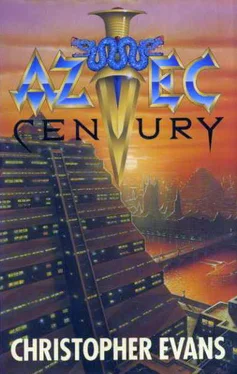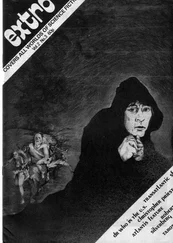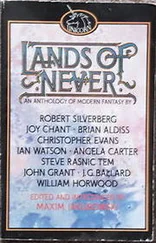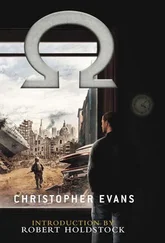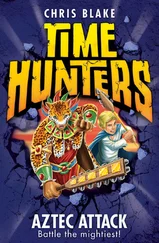Again I found it hard to speak, and even harder to think clearly.
‘Did they say who they were?’
Now he was distinctly unsure of me. ‘Someone from your bank, it was. They’ve opened an account for you with me, so it’s all paid for. All right, is it?’
I looked at the box. It held bread, milk, tinned goods and washing powder. It was hard not to stare at him.
‘There’s another one in the back of the van,’ he said. ‘Where’d you want me to put it?’
I was still numb. ‘In the kitchen,’ I said, moving aside, indicating. ‘It’s in there.’
I followed him inside. He put the box down, then went out again, but not before saying, ‘Bit of rain we’ve been having.’
I couldn’t answer. He returned promptly with a second box, holding fresh vegetables and fruit.
Victoria was still asleep upstairs, and I was grateful, in case the sight of him sent her into another screaming frenzy. Everything about his manner suggested he was entirely innocent of who we really were and where we had come from, but his very appearance had thrown me into the throes of suspicion and unease. I wanted him to be gone, but at the same time I needed to find out what he knew.
‘You said it was paid for,’ I remarked.
He nodded blithely. ‘There’s an account at the local branch. They said you din’t want any fuss. Sister’s not well, is she?’
My suspicions redoubled. ‘Who told you that?’
He was peering around the kitchen. ‘Man who phoned. Mentioned that she’d had a breakdown, poor dab, and that you’d come here so she could convalesce. Nice and peaceful spot, isn’t it?’
‘Did he tell you who we were?’
Off-handedly he said, ‘Sisters from London. Got a bit of money behind you, have you?’
‘Who said that?’
He obviously found me strange, and perhaps was trying to be casual in response.
‘I just assumed. With neither of you working, like.’
Was this simple inquisitiveness? Or an echo of the other Bevan’s insolence? Did he really know something?
‘Was there someone living here before us?’ I asked.
‘Headmaster of the school,’ he said, obviously referring to the one above us on the hill. ‘He moved to Newport when it shut down. It’s been empty this past year or more. Pleasant spot, I reckon, with the river close by and no one to bother you.’ He sucked on his teeth. ‘Well, I’d best be going. See you in a week. If there’s anything extra you need, the number’s in the book. It’s the Gwalia Stores in town. Castle Street, up by the town clock. You can’t miss it.’
I followed him out to the door. He climbed into the van and started the engine. I had the impression he was eager to be going.
The driver’s window was open. I went up to it as he revved the engine.
‘What’s your name?’ I asked, a tremor in my voice.
But he was already pulling away.
Five months have passed since we first arrived here, and all my efforts to discover some firm evidence of our former lives have failed. Even if I had been so inclined, it would have proved difficult to travel widely because Victoria becomes agitated if we are away from the cottage for any length of time; and I share her tendency to want to huddle there.
Despite this, I did make several forays at first, forcing Victoria to accompany me to Tredegar, where the Gwalia Stores indeed exist. I watched Bevan serving customers inside but did not enter myself. Of course, I’m not certain his name is Bevan because the store front gives no proprietor and I’m afraid to ask any of the locals. I’m afraid to ask them in case they confirm it, or in case they don’t. Somehow uncertainty seems preferable, though I can’t rationally explain why. I refused even to consult the telephone directory, which might not, in any case, be conclusive. Bevan is a common name in this part of the world, a legacy of the English conquest of Wales, as on my Earth.
On that same visit, I steeled myself to go into the local bank, where it was confirmed that an account had indeed been opened in my name – Catherine Marlborough, the family name my great-grandfather adopted when he ascended the throne. Moneys from a trust fund would pay a net annual income of fifteen thousand pounds a year – more than enough to live on. Why such generosity? I wondered. It would have been far easier, and more cruel, for Extepan to have dumped us here penniless. Was it in deference to our former status? Or was he not yet finished with us?
It was difficult to establish the facts behind the trust fund without revealing my utter ignorance and thus arousing suspicion, but eventually I was allowed to speak by telephone to someone from the parent bank in London. He sounded businesslike and very English, and gave every impression of knowing nothing about the Aztecs, of being no part in any duplicity on their behalf. By a tortuous process involving equal measures of dissembling and strategic absent-mindedness, I was able to establish that Victoria and I were supposedly the daughters of a diplomat who had been lost, with his wife, in an aircraft which had disappeared over the Gulf of Mexico – my heart quailed at this – two years before. Victoria was ill through a shock reaction to their deaths, but arrangements had been made in my father’s will to provide for us. We had lived much of our lives in the Americas, and had no friends or relatives here.
I did not press the matter. No doubt all the relevant documentation existed, expertly faked and on file. Presumably the Aztecs had been sending their agents into this world for long enough to have built up impeccable identities as well as funds to support their operations. It was possible their agents in London would be British citizens from my world, collaborators with the Aztec Empire who could move with complete confidence through this Britain.
Not a day passed when I didn’t look, in my surroundings or in newspapers and television programmes, for evidence of Aztec infiltration. I was certain someone from that world would have been put close by to watch over us. But I could never pinpoint anything. My suspicions tended to focus more and more on our new Bevan, a true native of this world, I was sure, but too much the alter ego of his enigmatic and elusive counterpart. Perhaps this Bevan had been recruited by the other one, was serving masters in my world. He called every week with our groceries, and while there was never anything in his manner to suggest this, his very presence and continual off-hand curiosity about us suggested a link. He was the only person I could identify directly with my own world, no matter that he differed from his progenitor. There were times when I wanted to ask him outright, but I could never muster the courage. I was torn between the need to know the truth and a fear of reopening terrible wounds. Victoria, for her part, showed absolutely no reaction when they finally encountered one another. Either something in her flatly refused to recognize him, or the abominations which had wiped away her sanity had also erased all memory of our past life.
So I vacillated, until one day I decided that there might be another means of confirming the truth. One Saturday, with a nervous Victoria in tow, I took a train to Paddington, and from there we travelled by Underground and suburban railway to Crystal Palace. I already knew that the palace in this world had been destroyed by fire decades before our own, but I had not come for that. I led Victoria through the park, down the hill towards the lake where the Quetzalcoatl structure had stood. On our world, it was the staging point for a tunnel into this one. And every entrance has an exit.
As we approached, I heard rhythmic percussive music. It was evening, and a small crowd was sitting on the big grassy bowl fronting the lake, watching a steel band play on a stage which had been built over it.
Читать дальше
